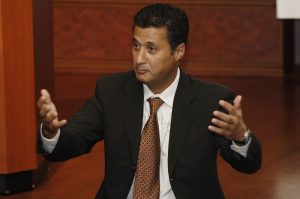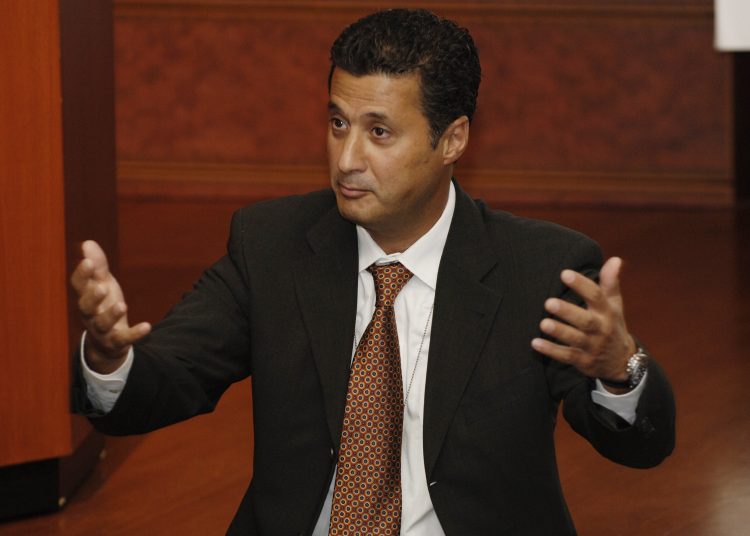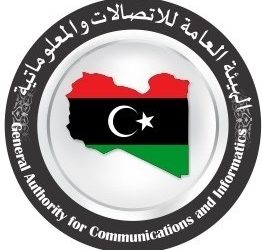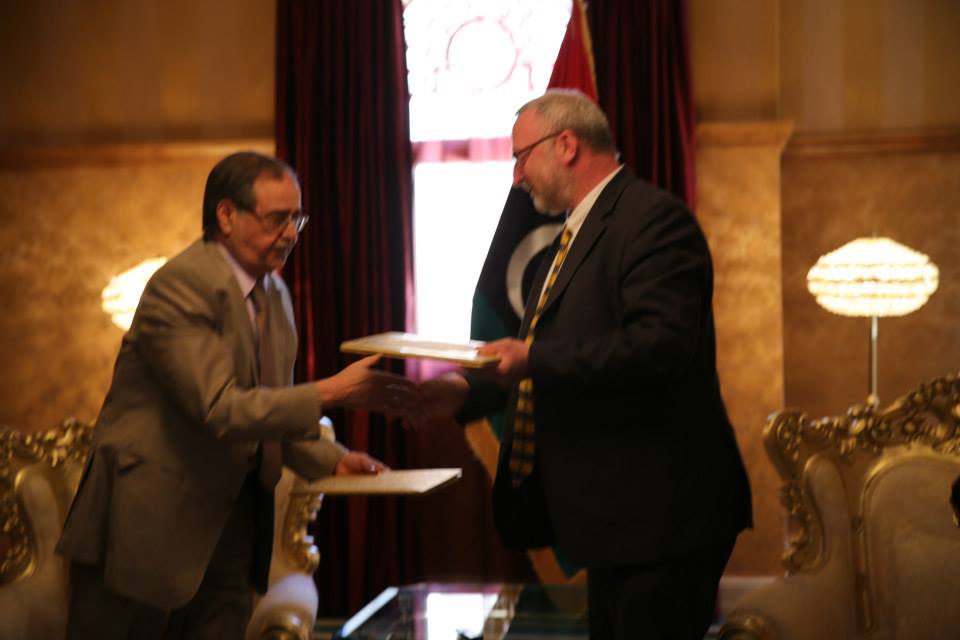By Sami Zaptia.

Tripoli, 4 June 2013:
On 31 May the IMF released the full report of its Article IV consultation with Libya. . . .[restrict]Consultations under Article IV between countries and the IMF are done on a request basis by countries.
The country receiving IMF advice is not obliged to implement it. This will be the first report to be released by the IMF since 2010 and hence the first since Libya’s February 17th 2011 Revolution.
Ralph Chami, Division Chief Middle East & Central Asia Department and Head of Mission to Libya, discussed the report in an exclusive interview with Libya Herald.
The IMF knows Libya well
Ralph Chami says that there were all-in-all eleven visits to Libya including joint missions with the World Bank and Technical Assistance missions. The report is, therefore, based “on extensive discussions and meetings with the three different governments of Mahmoud Jibril, Abdulrahim Al-Kib and Ali Zeidan”, he noted.
The report builds on all these discussions and by the same group that he feels now knows Libya well. The report is important Chami says as “Libya is at a crossroads. Decisions taken today will have great impact on its future”.
Norway on the Mediterranean
But Chami is optimistic for Libya. “One can dream of a Libya being the Norway on the Mediterranean. Like Libya Norway has hydrocarbon wealth, but also a first class economy. So Libya can improve in that direction, but to do so it has certain things that it must do. Therefore the IMF report is structured in that way”, he explained.
Short term measures
With a background of institutional capacity constraints, with the constitution in the process of being written and institutional capacity being rebuilt, Chami explained that in the short term Libya has to maintain macroeconomic stability and a disciplined budget.
In the medium term there are structural challenges that need to be dealt with such as enhancing the education system to remedy the skills mismatch that exists, the infrastructure and a social safety net to ensure inclusive growth.
Therefore if the Norway economic model is the aim, there needs to be private sector-led growth because that is where jobs will be created and that is the engine for youth employment. But the private sector needs help, Chami added. It needs regulatory uncertainty to be reduced, investment in education and human capital, and a fully functioning financial sector is also important.
“Libya has all the ingredients”, Chami insists. It has the location and it has all it takes to move out of the high dependency on hydrocarbons to provide a viable private sector, but it has to better exploit its endowment.
Over dependency on hydrocarbons – price volatilities
Libya has quickly succeeded in reaching pre revolution hydrocarbon production levels, but its dependency on hydrocarbons makes it vulnerable to hydrocarbon price volatilities.
Financial sector to provide credit : the interest ban
For the private sector to flourish a viable and healthy financial sector is needed to provide credit. To this end, Chami expressed concern at the effect the newly announced interest ban will have in practical terms. Chami was keen to stress that the IMF had no view on the policy itself, but that it was the practicalities of its roll out and their real effect on the lending market in the short term that needed to be thought through with more care.
He felt that in the short run private credit could be curtailed in a sector that already does not lend, negatively affecting private sector growth.
This needed to be rolled out with a plan of action to allow the banking sector to react and the government time to handle the transition period, Chami felt.
Subsidy reform
With regards to Libya’s intended subsidy reform, Chami was “happy to see that the GNC has asked for recommendations due this summer. There needs to be a move from untargeted to targeted subsidies, to those who are in need. Now, the poor are subsidizing the rich. Targeted subsidies reduce the room for corruption and smuggling and other negative side effects. An efficient safety net to protect those that need protection also needs to be put in place”.
“The reform has to be done gradually so as to identify those that need help. We have received an official request to provide technical assistance in this area and we are happy to help with this study”, confirmed Chami.
Treasury Single Account
Other areas recommended for reform by the IMF include the creation of a Treasury Single Account (TSA). A TSA also gives the authorities a better handle on accounts and reduces corruption. Chami again confirms that the IMF has received an official request for help in this.
Intergenerational equity
The IMF recommends that a state’s budget should not be set purely with yearly limits, but should be set for 2 or 3 years. This discourages governments from overspending in any one year at the expense of future generations, for example on subsidies and wages. Libya’s subsidies and wages make up about 30% of the GDP, one of the highest in the world. This reduces the amount that could be spent on development and infrastructure. Again, Libya has requested help from the IMF in this issue.
More transparency
Chami praised the Libyan authorities for publishing the full report as “a good sign of transparency”. He admitted that the current authorities had inherited a lot of legacy from the previous regime that needed to be publicized. But equally, he felt that it was time to draw a line under the previous era and move forward.
“Libya had to move from transition to development mode”, Chami added, and that “transition and development had to take part at the same time”, he concluded.
[/restrict]







